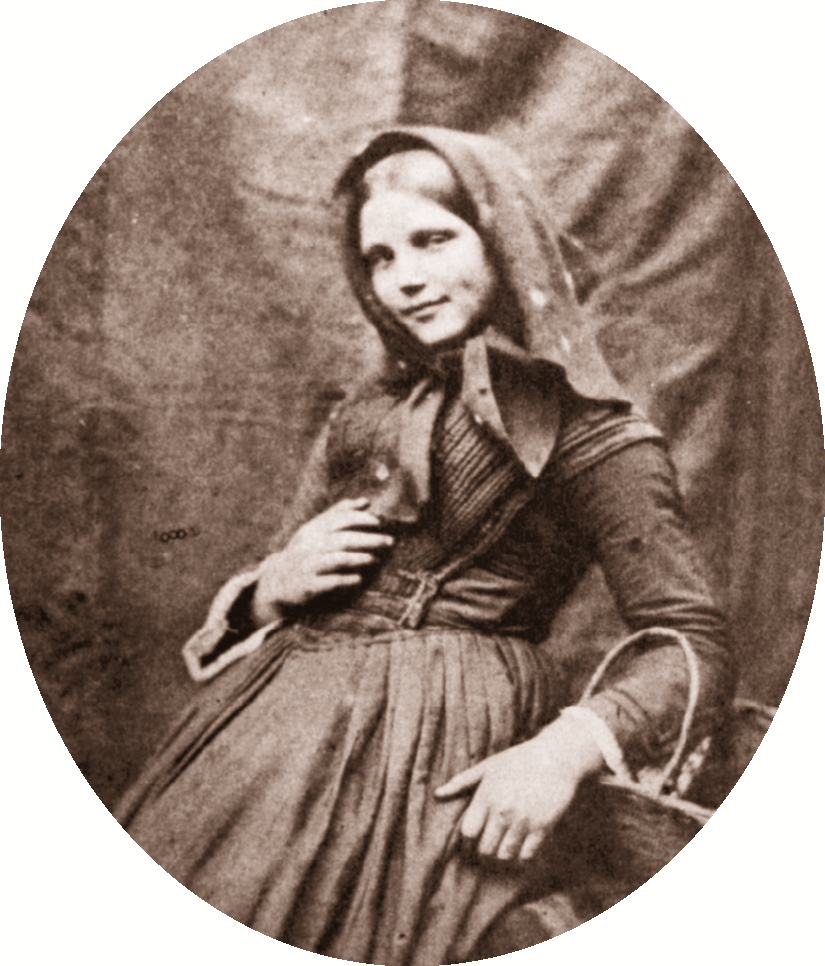Take your umbrella out of your mouth. Sucking the handle of one’s parasol is apparently a common practice among young ladies, either as a nervous habit or a dreadfully misguided attempt to display the possibilities of a sensual mouth. It’s not as beguiling as you think and will not help you find a husband of character. Mrs. Florence Hartley, in her 1872 The Ladies’ Book of Etiquette, and Manual of Politeness: A Complete Handbook for the Use of the Lady in Polite Society, addressed the issue most succinctly:
“What are you doing? Sucking the head of your parasol! Have you not breakfasted? Take that piece of ivory from your mouth! To suck it is unlady-like, and let me tell you, excessively unbecoming. Rosy lips and pearly teeth can be put to a better use.”
Now that we have that settled, we can address the finer points of making yourself man-worthy.
George Napheys was one of the first to write approachable, nonpornographic literature on the subjects of sex and hygiene. And for this we will give him due credit, no matter how queerly his words fall upon our modern ears. The Physical Life of Woman: Advice to the Maiden, Wife and Mother, which Napheys began writing in 1869, devotes much attention to that golden time betwixt maidenhood and wifehood: the courtship.
Give Him NOTHING
You are a prize to be won. He must work to capture your affections and approval. Only the stupid and slutty trout leap out of the water to gain the fisherman’s attention. The virtuous trout simply allows the sun to gleam briefly on her shining scales and then dives back to the shadowy depths. Only a skilled man with the finest of fake bugs can ream a metal hook through her mouth. You are that trout, and the metal hook you are about to be impaled on is holy matrimony. Napheys explains:
“A wise provision of nature ordains that woman shall be sought. She flees, and man pursues. The folly of modern reformers, who would annul this provision, is evident. Were it done away with, man, ever prone to yield to woman’s solicitations, and then most prone when yielding is most dangerous, would fritter away his powers at an early age, and those very impulses which nature has given to perpetuate the race would bring about its destruction.”
That is to say, if there were ever to come a time when women cast off the tradition of modest reluctance and approached men romantically, the epic loss of semen due to man’s endless acquiescence would sap not only his strength, but his ability to propagate the human race. This fact is reinforced by my other favorite authors in this genre, Benjamin Grant Jefferis and J. L. Nichols, who wrote the tremendously popular Search Lights on Health: Light on Dark Corners—A Complete Sexual Science and a Guide to Purity and Physical Manhood in 1895. They agree. Flirting is just murder on your testicles.
“The young man who may take pleasure in the fact that he is the hero of half a dozen or more engagements and love episodes, little realizes that such constant excitement often causes not only dangerously frequent and long-continued nocturnal emissions, but most painful affections of the testicles. Those who show too great familiarity with the other sex, who entertain lascivious thoughts, continually exciting the sexual desires, always suffer a weakening of power and sometimes the actual diseases of degeneration, chronic inflammation of the gland, spermatorrhoea, impotence, and the like.—Young man, beware; your punishment for trifling with the affections of others may cost you a life of affliction.”
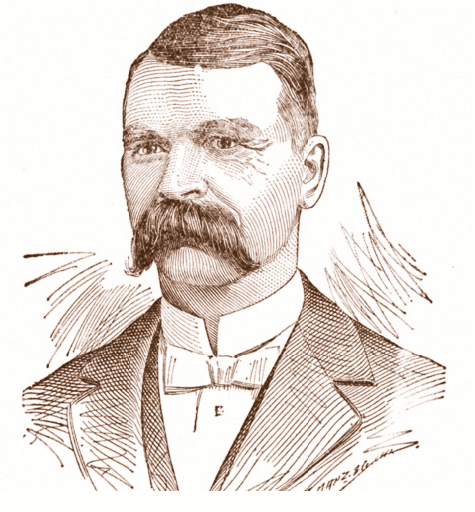
J. L. Nichols is not a trifler.
See, men can trifle with their excretions, too! But men are weak when it comes to sexual restraint. Which is why, my angel, it is so very, very important that women be ashamed of their bodies. And their desires. Let’s just say everything. Question every facet of yourself as a human, constantly, just to be safe. After all, only your self-loathing can keep the human race thriving. Says Napheys,
“To prevent such a disaster, woman is endowed with a sense of shame, an invincible modesty, her greatest protection, and her greatest charm. Let her never forget it, never disregard it; for without it she becomes the scorn of her own sex and the jest of the other.”
Fumbled Flirtings
Of course this would suggest a woman is powerless, unable to grease the cogs of love in her own favor by word or deed! Fie, darling. Women are much too wily for that. If you choose, you may engage in the delicate art of flirting. And I mean delicate. Nothing so crass as winking, saying hello, or smiling. You don’t want him to think you’re easy. No, Victorians had a whole language of love that is largely lost to us today: that of flirting through your fashion accessories.

The sexual tension is almost unbearable.
It’s a very complex language with, in my opinion, much room for misinterpretation. Below are some examples of object flirtation, as sampled from 1890’s The Mystery of Love, Courtship and Marriage Explained, by Henry J. Wehman. I have included each action’s intended secret meaning and what it probably actually meant whenever it occurred. Get that parasol out of your mouth, dear, you’re going to need it.
HANDKERCHIEF FLIRTATIONS
Dropping it in front of a man
Intended: “We can be friends!”
Actual: “Wow. I cannot believe I’m supposed to carry my own snot around with me all day. So disgusting. Ugh… maybe I can… just drop it? Just pretend I lost it?”
Twirling it in both hands
Intended: “I am indifferent to you.”
Actual: “Bored. So bored. Church lasts three hours in this century? Heh, hey, look! I can twirl to the beat of ‘We Will Rock You’ and no one even knows I’m doing it.”
Drawing it across the cheek
Intended: “I love you.”
Actual: “Agh! That was the third bug to splatter on my face! Stupid open carriages! Staring at a horse’s pooper for hours while my internal organs get knocked out of place with every bone-shattering bump. How is this romantic?”
FAN FLIRTATIONS
Carrying it in your left hand
Intended: “I desire your acquaintance.”
Actual: “I am left-handed. But I’m not supposed to be. Don’t tell people.”
Placing it on the right ear
Intended: “You have changed.”
Actual: “Oh, holy cow. Oh, man. I am itching like crazy. I really need to have Mother go over my scalp for nits again. She’s gonna have to come up with something better than soaking my head in onion juice and boric acid because I am not doing that again.”
Drawing it across the forehead
Intended: “We are watched!”
Actual: “Really freakin’ hot in here. Oh, yeah, I carry a fan now. Whew!”
PARASOL FLIRTATIONS
Striking it on your hand
Intended: “I am very much displeased!”
Actual: “You told everyone I was left-handed? Mister, this is my special smackin’ umbrella, and I am going to wallop you so hard your great-great-grandchildren will feel it and have to pay a really high bill for an MRI that won’t show anything, because it doesn’t pick up on time-travel whuppins. So step off!”
Folding it
Intended: “Get rid of your friends!”
Actual: “Why did I bring this? It’s England. The sun never even shines!”
Dropping it
Intended: “I love you.”
Actual: “Darn. That must be a parasol for right-handed people.”
GLOVE FLIRTATIONS
Biting the tips of the fingers
Intended: “I wish to be rid of you very soon.”
Actual: “Go away so I can suck my parasol. Oh, I can just taste it.”
Turning them inside out
Intended: “I hate you.”
Actual: “This stitching is atrocious. Seriously, if I order something bespoke I expect the clothier to hire peasants with nimble fingers.”
Dropping them
Intended: “I love you.”
Actual: “Argh! Trip on one beggar child, and there goes a new pair of hand-sewn white deerskin leather matinee-length gloves that cost like eighty dollars in real money. Right into a pile of horse manure. I HATE THIS CENTURY.”
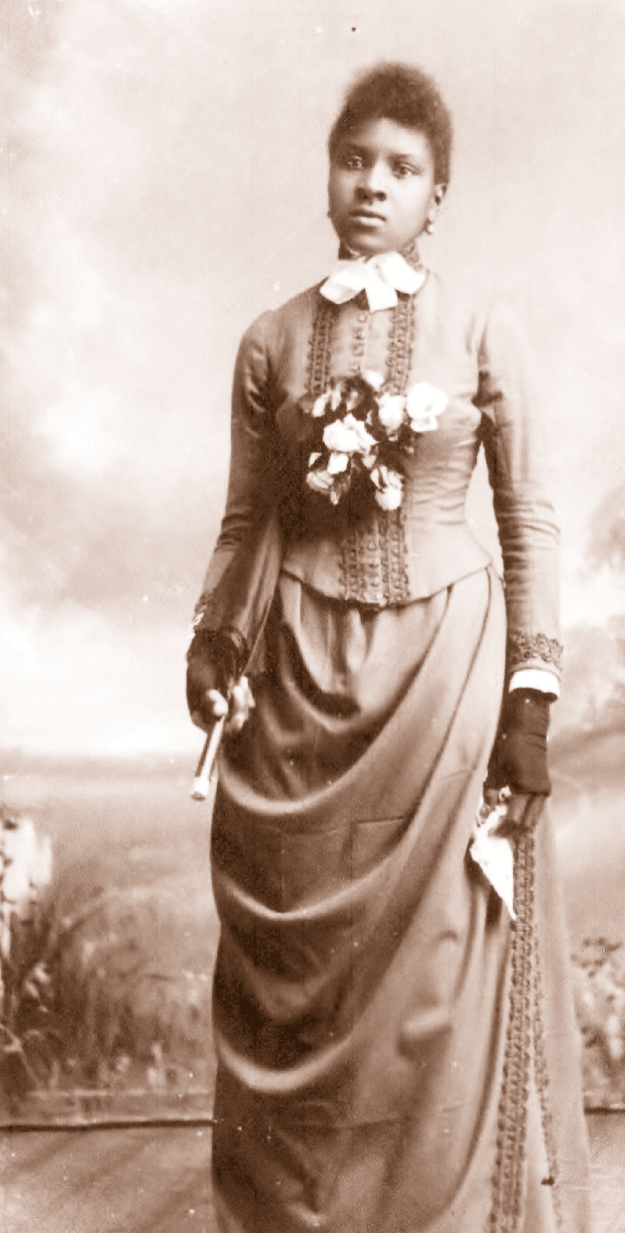
“For the last time, I stumbled on my dress and I just dropped it. It doesn’t mean we’re eloping tonight! Now shove off!”
Shame: The Sweetest Blessing
Disingenuous and perplexing? Not something you’d want to try? Good.
Because it was a test, my girl! Only harlots do something as base as flirt. I mean, really, darling. Perhaps we should save time, dispense with the gloves and fans altogether. You could just back your rump up and present for him like an alley cat in heat! No flirting! You are a lady. Jefferis and Nichols explain how the character of the flirting woman is desperately lacking in shame.
“Who is the flirt… in the streets after dark, boisterous and noisy in their conversation, gossiping and giggling, flirting with first one and then another, will soon settle their matrimonial prospects among good society. Modesty is a priceless jewel. No sensible young man with a future will marry a flirt.”
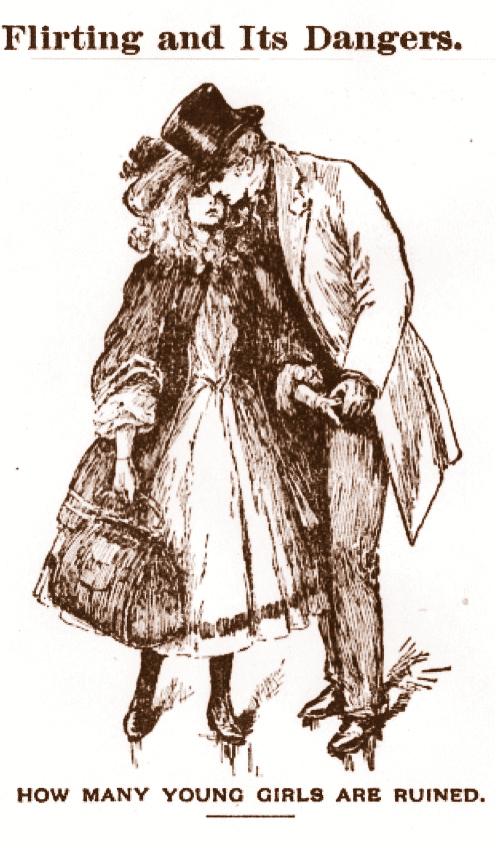
Men don’t find an outward display of joy appealing! “Joy” doesn’t get the roast on the table by 6 p.m. sharp! Chitchat doesn’t help a woman survive having nine babies! Flirtation leads to familiarity, a state of being that has wrenching consequences, as explained in Melville C. Keith’s 1890 The Young Lady’s Private Counselor: The Care of Mind and Body; A Book Designed for Young Ladies, to Aid Them in Acquiring a Life of Purity, Intellectual Culture, Bodily Strength and Freedom from Many of the Ills and Annoyances of Life That Custom Has Placed on the Sex (yes, that is the title—TYLPCTCMBBDYLATALPICBSFMIALCHPS for short):
“Undue familiarity cheapens a girl even in her lover’s eyes and lays the foundation of future jealousy and possible murder. There is plenty of time for familiarity after marriage.”
Our author does not diagram the transition from flirting to homicide. But does he really need to? I mean, who doesn’t look at a teenager fluttering her eyelashes at some boy and think, “That’s going to end with three corpses in a filthy, blood-soaked basement”? And let’s not forget that flirting is a gateway to more serious and life-ruining forms of canoodling. Tell us more, Messrs. Jefferis and Nichols:

Canoodlers! Canoodlers, by God!
“Kissing, Fondling, and Caressing Between Lovers.—This should never be tolerated under any circumstances, unless there is an engagement to justify it, and then only in a sensible and limited way. The girl who allows a young man the privilege of kissing her or putting his arms around her waist before engagement will at once fall in the estimation of the man she has thus gratified and desired to please.”
That is what happens when you ignore your God-given sense of shame, lambkin. He wants to put his arm around your waist. You bashfully allow him to. He realizes you’re a dirty slut and wants nothing more to do with you. A + B = C, and C = you dying alone with syphilis. Simple math to complement the rather creative science we’ve been citing, such as “The purity of woman is doubly attractive, and sensuality in her becomes doubly offensive and repellent. It is contrary to the laws of nature for a man to love a harlot” (Jefferis and Nichols).
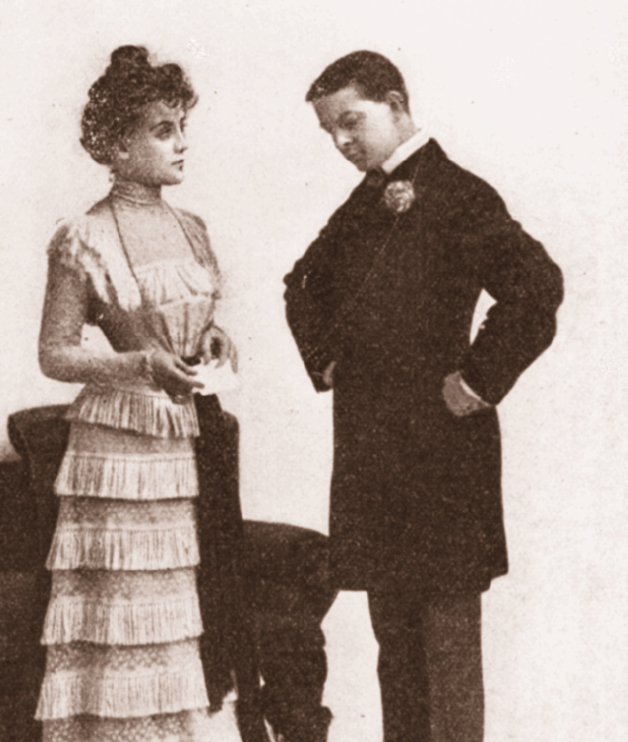
“Lydia! Is that a letter from another beau? Oh, you know how cross that makes me! I’m going to go get my dueling cravat.”
Just look at it from his perspective: “If she lets me put my arm around her waist, how many other arms have been there before mine? When I’m hugging her, I’m hugging every person she has ever hugged. Even worse, she appears to enjoy this warm romantic touch. That isn’t natural! It means her brain is addlepated (likely from too much masturbation) into a simmering state of pre-hysteria. She’s a time bomb. A hussy time bomb!”
That is what your intended will be thinking as he hurries away from your poisoned touch. If he be wise, that is. If he is the sort who does not care about the vitality of his testicles, he may stay. But that’s not the sort of man you want for a husband, is it?
Of course, as a woman, there are some physical reactions you can’t help engaging in when you are in love. Just ask our dear Mr. Fowler.
“All women with a loved man always thus set their breasts forward towards him, and so that if in low dress, they would exhibit the upper part of their bosoms. Beaux, this sign tells you infallibly that your girl loves you, and its absence that she does not.”
Oh, it may be inconvenient, you enjoying a chat with your mother only to be struck into silence when zing! Your beloved enters the room and your breasts snap to attention like good soldiers saluting their commanding officer. But true love is hard work, darling.
Eugenics—Not Just for Nazis
So how does one go about securing lifelong love without compromising virtue? Luckily Jefferis and Nichols gave that quite a bit of thought. Now, be open-minded and try not to think of Hitler.
That may be directly where your brain goes when you hear the word “eugenics.” But eugenics is about more than a moving wall of blond, blue-eyed Teutons goose-stepping in perfect formation across Europe. The idea itself is fascinating, and it’s the basic process used in agriculture and animal husbandry: the fastest mare is locked in a stable with the strongest stud with the hopes that their vicious and horrifying love will produce a Kentucky Derby champion. Our turkeys are huge-breasted and our tomatoes transport well with minimum spoilage because of selective breeding.
So what if, thought many a Victorian thinker with too much time on his hands, we did that with humans? Wouldn’t that be marvelous? Strong people with balanced mentality would reproduce, and we could sterilize the weak, unintelligent, and sickly, or just forbid them to marry, and wait for the dregs of humanity to slowly die off. Could anything be more natural?
Margaret Sanger, the visionary founder of Planned Parenthood who broke many laws in her efforts to give women the right to control how often they get pregnant, believed in eugenics, which troubles many who want to lionize her today. But lots of intelligent people believed in eugenics. They weren’t all evil, and they weren’t necessarily trying to breed a master race. Some of them just thought eugenics could help stem the endless tide of poverty, illness, and starvation that saturated the nineteenth century. They saw it as a way to stop a lot of suffering before it started.
It was also incredibly draconian and impossible to implement without violating basic human rights. But we’re talking about an era when constantly drunk men labored in coal mines fourteen hours a day and took their eleven-year-old wives to watch a mentally disabled man accused of horse theft be executed in the center of town as a special treat. It was not a gentle time. Human rights was an idea brewing, but it brewed over a very low heat.
Selecting the Right Head Lumps
I just wanted you to have a good grasp of the importance of eugenics and selective breeding when you read Jefferis and Nichols’s advice on selecting a mate. They sound—they sound a tad severe, I know. But hear them out.
First, you must select your future husband scientifically.
“If you court at all, court scientifically. Bungle whatever else you will, but do not bungle courtship. A failure in this may mean more than a loss of wealth or public honors; it may mean ruin, or a life often worse than death. The world is full of wretched and mis-mated people.”

This of course meant that hot-tempered women should marry coolheaded men and shy ladies fit well with glad-handers. Jefferis and Nichols even extended this theory to body builds. Stout should marry slender, short should marry tall, and so forth.
“Bright red hair should marry jet black, and jet black, auburn or bright red, etc. And the more red-faced and bearded or impulsive a man, the more dark, calm, cool and quiet should his wife be; and vice versa. The florid should not marry the florid, but those who are dark, in proportion they themselves are light. Red-whiskered men should marry brunettes, but no blondes; the color of the whiskers being more determinate of the temperament than that of the hair.”
This is fact. Hair color and complexion tones precisely indicate your personality. They just do. No! Stop right there. It’s the nineteenth century and you’re a woman; I owe you no explanation. Hush, now, men are trying to teach you something that might one day save you from a murder-suicide pact.
Phrenology allows you to tell whether a man will make a terrible husband just by asking him to remove his hat. Here’s a tip from Jefferis and Nichols: “Do Not Marry a Man With a Low, Flat Head; for, however fascinating, genteel, polite, tender, plausible or winning he may be, you will repent the day of your espousal.”
Conversely, there are appearances you want to avoid presenting so that you may attract the finest-quality husband. You serve many purposes as a wife, but the most important is incubating and extruding his biological legacy from your body. You’d better look like you’re up for the task. We’ve already covered man’s attraction to full bosoms, youth, and healthy-hued skin. But there is more to consider. When it comes to a woman’s possible deficiencies in pleasing a husband, there is always more to consider. Take it from Jefferis and Nichols:
“Wasp Waists.—Marrying small waists is attended with consequences scarcely less disastrous than marrying rich and fashionable girls. An amply developed chest is a sure indication of a naturally vigorous constitution and a strong hold on life; while small waists indicate small and feeble vital organs, a delicate constitution, sickly offspring and a short life. Beware of them, therefore, unless you wish your heart broken by the early death of your wife and children.”
Note the practicality. Our authors don’t question the virtue or amiability of the potential bride; they simply advise, in true eugenic fashion, that she is improper breeding stock and therefore should gracefully remove herself from marital considerations and live a sweet, short life all alone, or maybe with some friends who also have teeny organs, and not pass the burden of her weakness on to children. Love just isn’t in the cards for everyone, dear. If God wanted you to have a husband He’d have given you thick, sturdy thighs and wide-set birthing hips.

“Mrs. Pancakes and I have teeny organs. We didn’t wanna fall in love and have kittens anyway, did we, Mrs. Pancakes?”
Love Is Blind, But Everyone Else Is Watching
Here you are. Although your physique and social class suggest your perfect scientific match is to be found within the limp embrace of an anemic Englishman in silk breeches, your heart rebels. Perhaps you’re drawn instead to the damp brow of a hardworking freedman fighting all odds to build the life of his dreams. Or perhaps you are an elder lady, who has overripened past the age of twenty-five, and you are drawn to the kind eyes of a widowed Chinese landlord who wants nothing more than to adorn you in jasmine-scented robes and opium tinctures. (I do not judge; that actually sounds like a lovely retirement plan.)
We know that you can marry your first cousin, of course, as Her Majesty the Queen has done. You can marry a man whose parents came from a different Western European country. (Not Irish or Italian, obviously; they’re a very colorful people best left to themselves. But the Swedes and Prussians are wholesome, sturdy folk.) You can even marry a man thirty years your senior, providing he remains active enough to keep his spermatozoa hopping!
But can you marry outside of your own race?
Oh, bless your heart. Your stupid, stupid heart.
Using the wrong fork can cause weeks of gossip. Calling a person you’ve known your whole life by their Christian name is coarse and improper. Unless you’re a grizzled French-Canadian fur trapper who takes a widowed squaw into his shack in exchange for three beaver pelts, the answer is no.
Napheys prides himself on dealing with hard truths that other Victorian writers are too timid to approach. Here he interprets the shocking situation of interracial marriage through the lens of pure science that he heard from a guy.
“It is well known that the black race cannot survive a northern climate. Dr. Snow, of Providence, Rhode Island, who has given great attention to the study of statistics, says emphatically that, in New England, the colored population inevitably perish in a few generations, if left to themselves. This debility no woman should wish to give to her children.”
I don’t know what “inevitably perish” means, I’ll admit. But that must be why no black people ever lived in wintry places like Chicago or New Yo—wait a minute. Huh.
That is but one reason of many Napheys and every other writer of the era give for why color lines should not be crossed. You do not want to hear the others. To be sure, there were interracial marriages nonetheless, especially in the undeveloped western United States. But rarely among the class of people who owned oyster forks. The Victorian era provided the foundation for social change, with the end of slavery and the beginning of suffrage and other civil rights movements. But just the foundation.
Spinsterhood
Now, there is the remote possibility that you did not come here for the muttonchops. Perhaps you’d rather not fuss with the whole mess that men bring into your life. If that be true, you, my friend, are heading for what is called spinsterhood. It is the female equivalent of “bachelor,” except it’s not sexy or fun and everyone secretly despises you although they’d be hard pressed to say exactly why. Because after all, spinsters are historically valuable members of society, according to a particular old maid identifying only as Pearl in an 1895 issue of The Monthly Packet:
“The old-fashioned suppressed spinster of our own youth… was called upon, before the days of trained nurses, to help in illness in other people’s houses; not only brothers and sisters, but first, and even second, cousins, claimed her services at births and deaths. She was as much excited by a love affair in any family with which she was intimate as the family itself, and was nearly always asked to weddings and christenings. Her life was full of reflected interest, and she took her share in the world, as one may say, by proxy.”
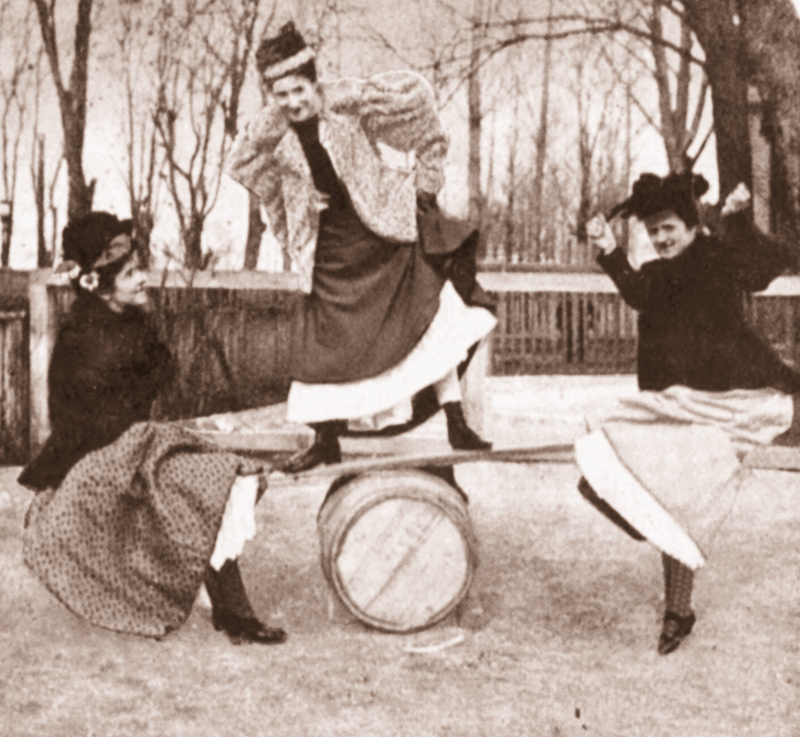
“Having a high time, not a man in sight!” That’s right, dearie. Stay positive. Your plank and barrel are just lovely.
Pearl goes on to lament the “modern” spinster, who looks down on the simple wife and mother and who insists that any woman who doesn’t want to talk about cats and suffrage is a dullard. What happened to the sweet spinster of old, who was exquisitely happy to watch as every woman in the family fell in love and went out to live her life while she sated her passion sketching ferns? The old girl whom you could rely on to come nurse your family through highly contagious diseases, since—not to be callous, but—God forbid she fall ill, it’s not like she had a great deal to live for in the first place.
We must again rely on Mr. Fowler to give us the real story on spinsterhood. It was a sickness, affecting uppity women. And they suffered for their arrogance. Simply put, without a man in your life, you’re already dead inside.
“You have no fond partner with whom to while away life’s now tedious days and nights, in pleasant talks, walks, rides and visits, on whom to lean, with whom to live; nor any rosy children to love, amuse, wait on, and nurse you; but are like a barren trailing vine, instead of clinging to some sturdy oak loaded with fruit; living a dreary life, and awaiting a drearier death.”
I know, it’s harsh. But honestly, darling, everyone is already thinking it. Here in the nineteenth century you won’t even get the courtesy of people wondering if you are a lesbian. They just assume you are excruciatingly undesirable. To put it in modern terms, an absolute dumpster fire.
It’s wonderful if you are young and pretty and can afford to be picky. But if you yourself are lumpy and obnoxious, you might have to disregard all the careful laws of choosing a good husband and settle down with the first flat-headed, foul-breathed rapscallion miscreant who gooses your bustle. But if that’s starting to look like the only option, my girl, you grab the ticket and ride that train straight to Perdition.
“Old maids, think back how ‘love cracked’ some one of your admirers obviously once was. You should have improved that precious season. You went farther and fared worse, and now wish you had accepted what you could then have obtained.”
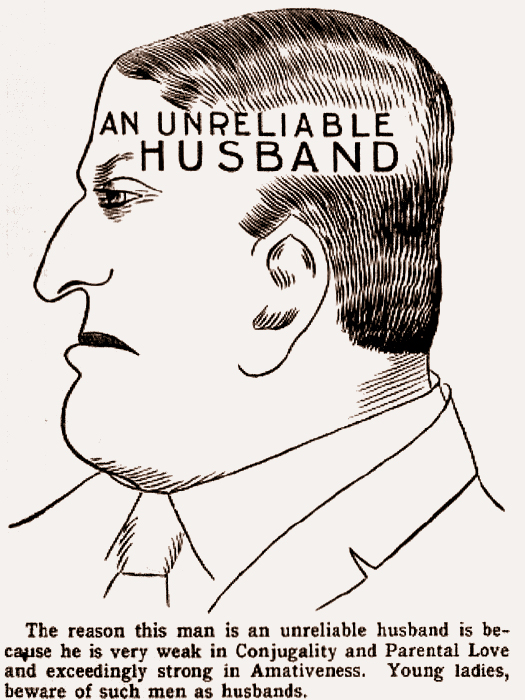
Good. Enough. For you.
Yes, dear, let Brother Fowler’s violent poetry wash over you; don’t fight it. It’s so much easier to accept your feminine role in this world if you don’t struggle.
“Your punishment must increase with years. You may stifle first love, and get along passably till thirty, when Nature revolts and chastises. Life becomes objectless or else distracted, or like a corn, perpetually aching. Enduring love’s crucifixion long withers or crushes out. Age widens your loveless gulf. Society gives you no right to love, nor be caressed, not even to reciprocate friendship, but shuts you in and out from men. Your age-marks belie your assumed youth. Your bloom withers and perishes.”
Just you, your useless corn life, and a society that thinks your portion of the town’s oxygen could be better used to ignite a drunk’s flatulence for a good laugh at the alehouse.
Find a man, cherie. And quick. Bring forth the wedding bells.

